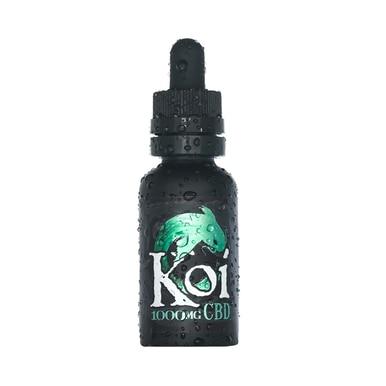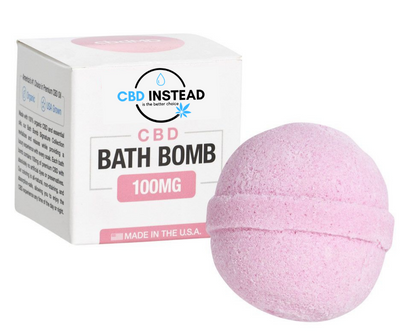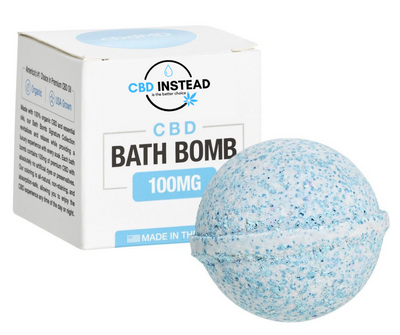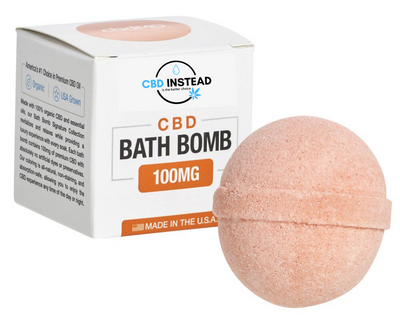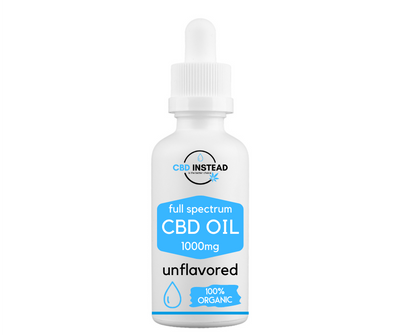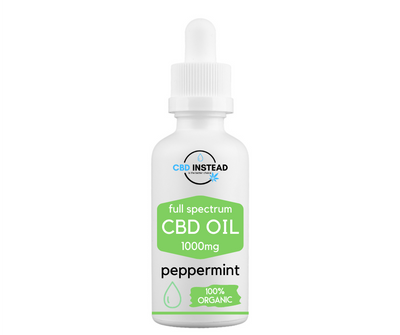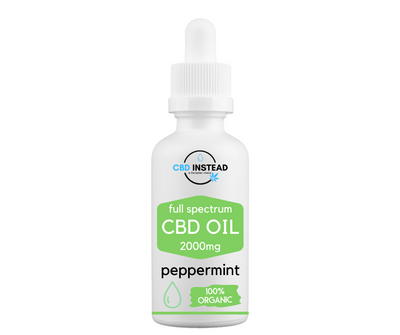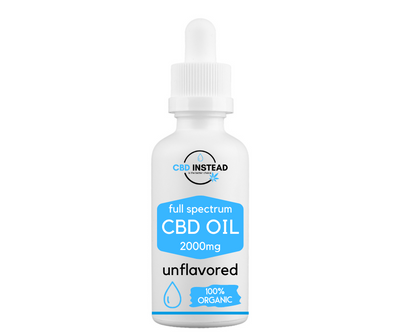Ulcerative Colitis is the most prevalent form of inflammatory bowel disease in the world. In America, 1 in 1000 people has this condition. While researchers are still unsure of how this disease is developed, they do believe that it could be an issue with the immune system. This brings scientists to the table to find out if CBD can help with colitis, hoping that its interactions with the immune system are enough for relief.
Cannabidiol (CBD) interacts with the endocannabinoid system which plays a significant role in mediating the immune system. CBD has shown in studies that it has the ability to reduce inflammation, which can make effectively treating ulcerative colitis possible.

IBD vs. IBS
Ulcerative Colitis is an inflammatory bowel disease, not to be confused with irritable bowel syndrome which is a frequent mistake. The main difference between IBS and IBD is that irritable bowel syndrome does not cause inflammation, ulcers, or do any other actual damage to the bowel.
IBS is considered less severe and is labeled as a functional disorder. In IBS, the digestive system looks normal it just doesn’t work the way it’s supposed to. If you think that this may be your issue, here are some of the symptoms:
- Feeling gassy
- Cramps
- Mucus in your stool
- Bloating
- Diarrhea
- Constipation
The one thing that IBS and ulcerative colitis have in common is that they mainly affect the colon. Crohn’s is another form of IBD, but it can cause ulcers anywhere along the digestive tract from the mouth to the anus. Researchers think that there could be many reasons behind IBS, but when it comes to IBD, they believe it is because of the immune system.
What Is Ulcerative Colitis?
Ulcerative Colitis is an inflammatory bowel disease (IBD) that affects the colon. Instead of welcoming food, good bacteria, and liquid in your body, researchers believe that your colon sees them as a foreign enemy. When your body recognizes a substance for something that is going to harm the body, it will send white blood cells to the area causing inflammation and ulcerations.
Symptoms Of Ulcerative Colitis
- Loose bowel movements
- Feeling like you have to relieve your bowels more
- Blood in stool
- Persistent diarrhea
- Pain or cramps in the abdomen
- Fever
- Weight loss
- Reduced appetite
- Fatigue
Treatment
When it comes to ulcerative colitis, you may need a large batch of treatment methods to help calm the disease down. People have been known to change their diet, use therapy, and take medication to help with their symptoms. Ulcerative colitis doesn’t have a cure, but there are ways you can manage this disease.
Diet
While food isn’t the baseline cause of ulcerative colitis, changing what you eat can help you manage the symptoms. Some foods can aggravate the colon making the inflammation more severe. Eating soft or bland foods as opposed to spicy foods can help reduce the severity of inflammation, and you have to keep in mind your nutrient intake. Because food will sometimes pass right through you, much will be lost through your bowel movements.
Therapy
Guided imagery relaxation training has shown in studies to help patients with ulcerative colitis. By reducing stress and anxiety, scientists believe this can help with the inflammation. Cognitive behavioral therapy (CBT) has shown in studies to help people who suffer from ulcerative colitis and depression. Studies have even suggested that trying acupuncture might also work.
Medication
There are of course pharmaceutical medications that you can take to help manage your ulcerative colitis symptoms. Anti-biotics, immunomodulators, steroids, and even biologic therapies have been used to help with this disease. In severe cases, surgery is even required. Current research is underway to find out if CBD oil can be added to this list of medical treatments.

What Is CBD?
Cannabidiol is a chemical found in the cannabis plant that has healing benefits like THC however it doesn’t get the user high. This form of medication has been under extensive research because of the lack of euphoria, risky side effects, addiction, and lethal overdose.
CBD interacts with a system in our body in charge of homeostasis called the endocannabinoid system. This system is what regulates your body to make sure you are at optimal functionality. Unlike THC, CBD doesn’t have a strong direct bond to the cannabinoid receptors in this system. Instead, CBD elevates and enhances the endocannabinoids our body already has to make the endocannabinoid system more efficient.
How Can CBD Help With Ulcerative Colitis?
Researchers believe that by manipulating the endocannabinoid system, you can find treatment for ulcerative colitis. In models that were deficient in cannabinoid receptors, they found that they were more prone to inflammation.
CBD As A Preventative
During a study where they gave rodents experimental colitis, they found that when they treated the rodents with cannabidiol beforehand, it actually prevented the disease. You may one day be able to add “preventing ulcerative colitis” to the list of reasons to take CBD daily, but many of you here already have it and need a better solution.
CBD Might Reduce Damage and Inflammation
Further studies where they gave rodent models experimental colitis showed that when given cannabidiol after, the damage to the colon was reduced. They also have found that rodent models with experimental colitis who were given CBD after the disease had less inflammation in their colon.
How CBD Interacts With A Healthy Colon
But what will CBD do if you don’t have this disease? Will it make your immune system weak in your colon allowing you to contract whatever disease comes through your digestive tract? In another rodent model study, they might have found the answer.
In this rodent study, they found that the mice that weren't given experimental colitis didn’t have the same reaction to CBD that those who had the disease. The mice that did have ulcerative colitis and were treated with CBD showed to have a reduction in certain proteins that came down to match the healthy subjects. Their mast cell levels were also reduced to match their healthy counterparts, and the study reaffirmed the possibility that CBD could be used as a preventative treatment.
CBD And Human Studies
But enough about the rats, right? What about people, we always wonder. Luckily, scientists are far enough into the research to start using actual biopsies from patients who have ulcerative colitis. In the previous study mentioned, they also tested pieces of colon taken from patients who suffered from ulcerative colitis. The same protein decrease that was found in the rodent models happened with these samples when given CBD.
The Double-Blind Study
It takes a long time for scientists to be able to bring their ideas to the humans who might benefit, but they have been able to make such significant progress that it became possible. A double-blind study including adults with ulcerative colitis were either given a placebo or cannabidiol. Researchers found that the patients who had the CBD has a lower mayo score and their quality of life improved.
CBD And Mental Health
Studies have shown that stress is a common factor that can increase the severity of inflammatory bowel disease. Stress is something that isn’t easily avoided in this fast-paced and cruel world, especially if you have problems with anxiety or depression.
CBD And Anxiety
Cannabidiol has shown in studies to have anti-anxiety effects. Scientists believe that many mechanisms make this possible, the most popular theory being that of the endocannabinoid anandamide.
Anandamide is an endocannabinoid that binds mainly to the CB1 receptor which is in charge of mediating neurological functions. This relationship helps to control your appetite, sleep, pain sensitivity, and mood.
The way anandamide works is through a process called retrograde signaling. While most neurotransmitters travel from the sending cell to the receiving cell, endocannabinoids move backward. Anandamide will go to the sending cell and tell it to either stop sending so many transmissions that is overwhelming the brain, or it can tell it to pick up the pace because there is so little activity.
Anxiety is a panic signal that has your amygdala and hippocampus becoming overactive. When these parts of your brain are overactive, it causes the fear response to signal more often even when you aren’t in any actual danger. Through enhancing anandamide, CBD may be able to help reduce this signaling which, in turn, means less stress and anxiety for you.
CBD And Depression
Exciting news for people with depression is that CBD may be able to work more quickly than common pharmaceuticals. By elevating a chemical in our brain that helps with function and growth called BDNF, CBD may be able to help restore damage done to two parts of the brain linked to depression, the hippocampus, and the medial prefrontal cortex.
Cannabidiol also can help with an uplifted mood thanks to the endocannabinoid anandamide. This chemical is released during exercise which contributes to the runners high feeling many feel after a good work out.

Talk To Your Doctor
Before jumping in, you should talk to your doctor about taking CBD. Hemp oil can make certain medications metabolize differently, so your doctor will need to know if you are going to implement hemp oil in your treatment. They can also help monitor your condition, so you can find out if this treatment plan is truly best for you.
Have you used CBD oil or any cannabis product for your ulcerative colitis? We would love to hear about it, leave your story in the comment section below!















